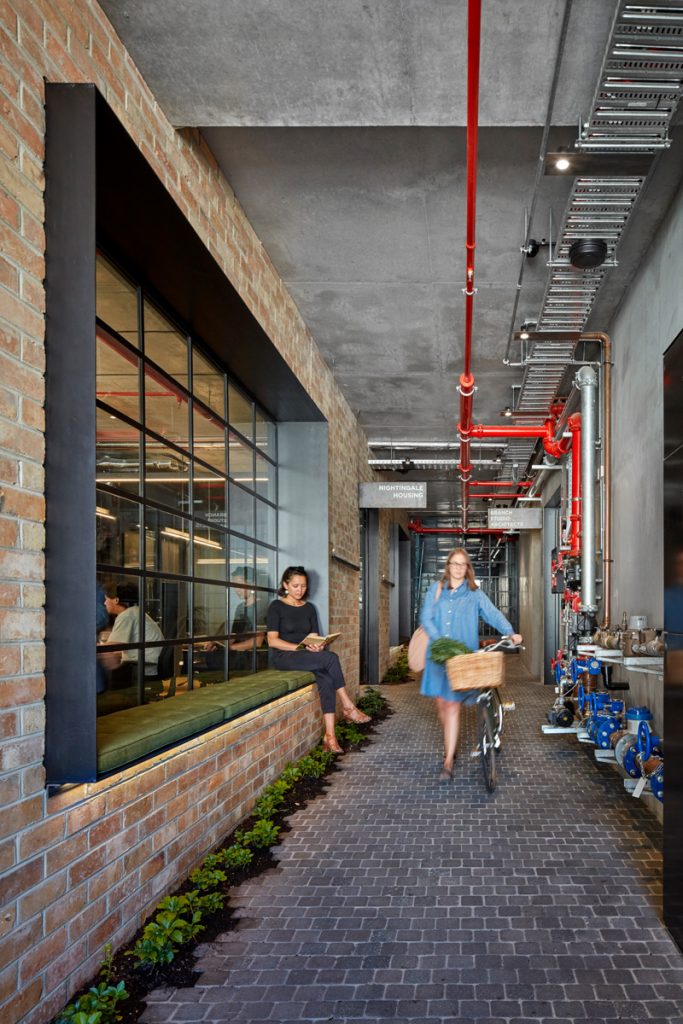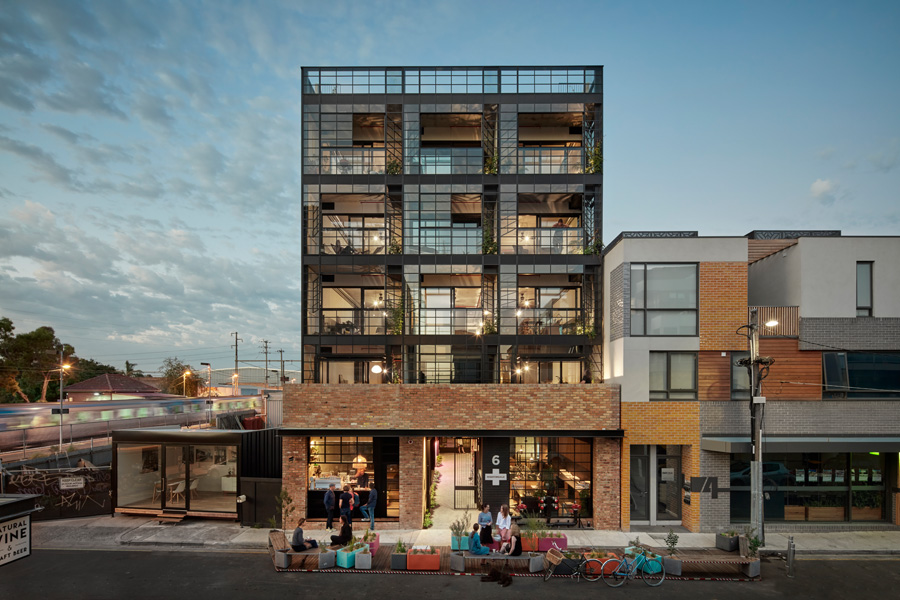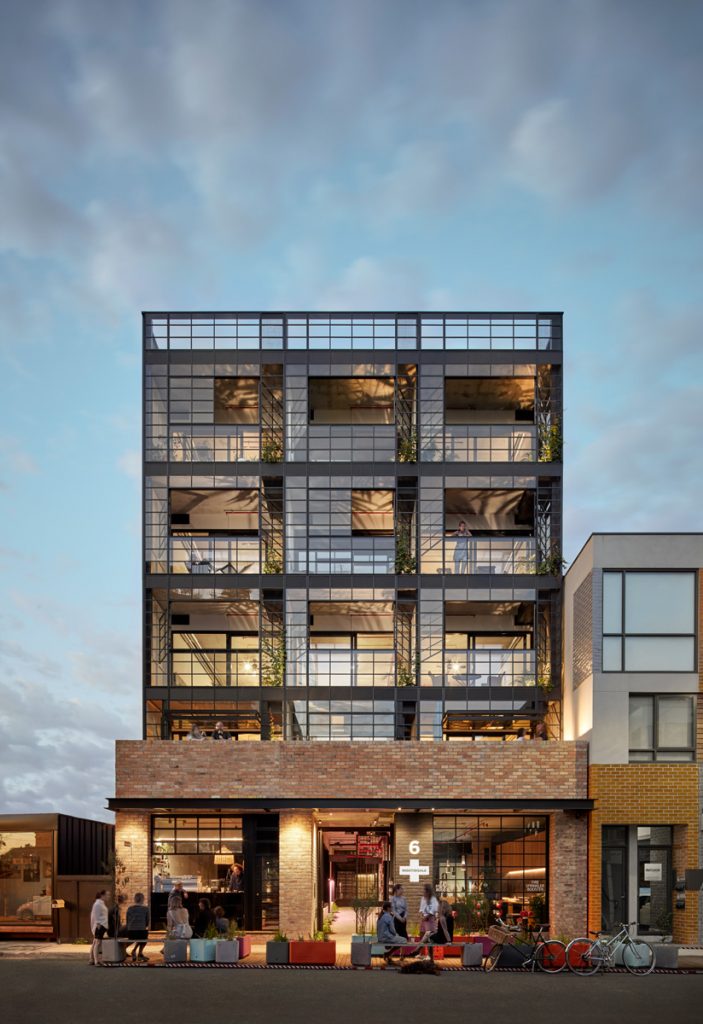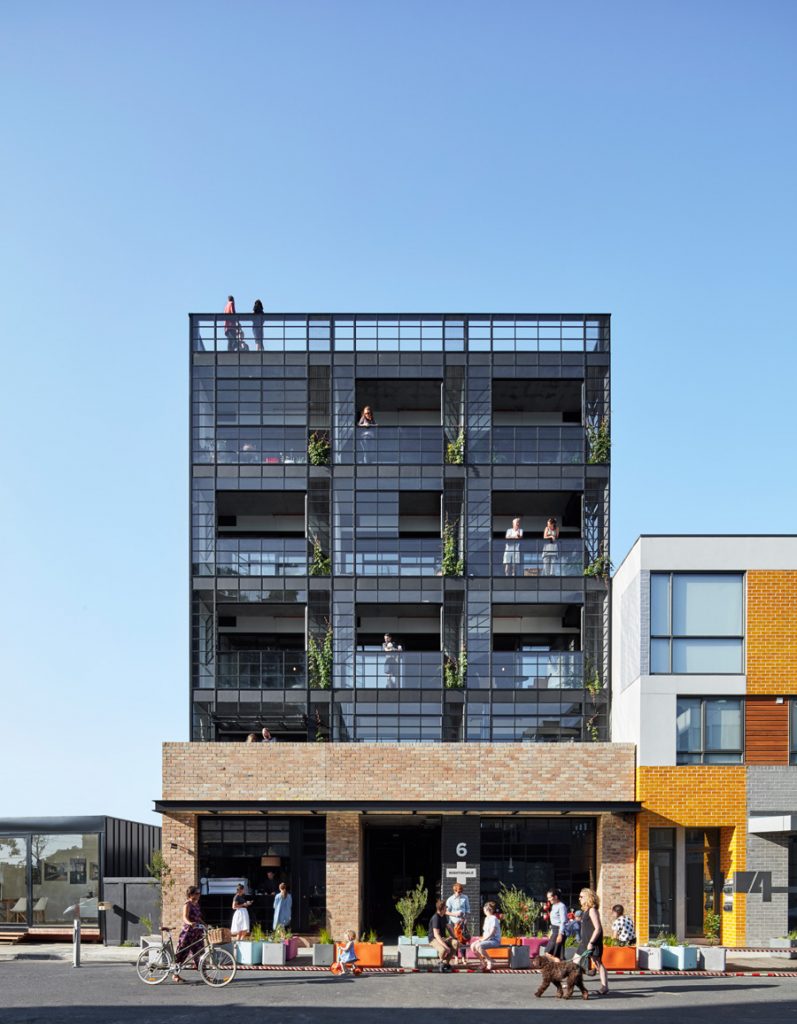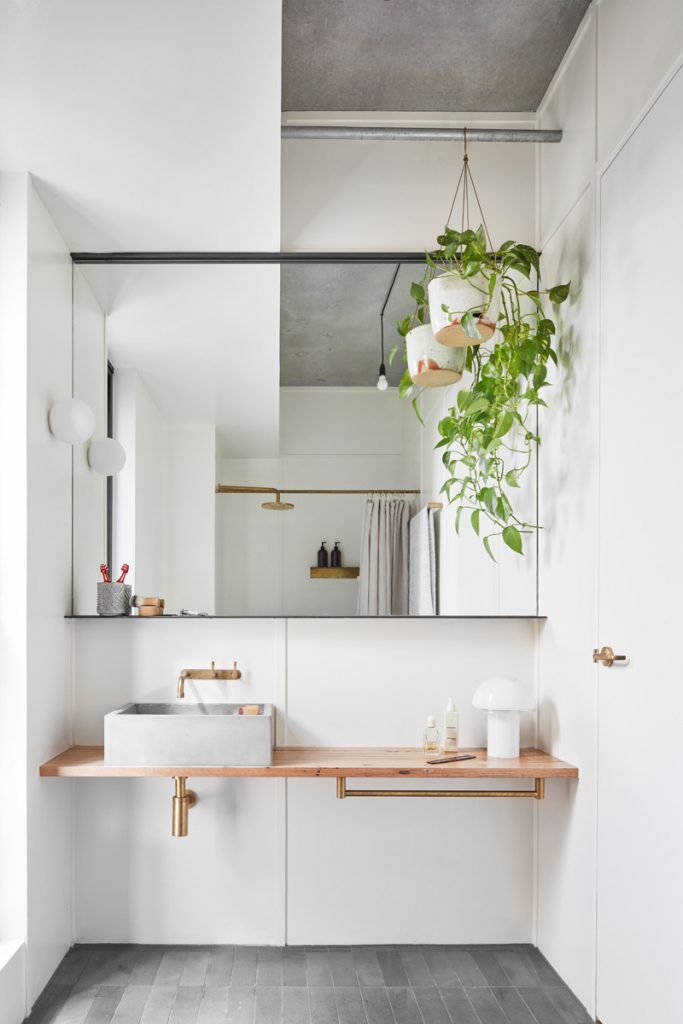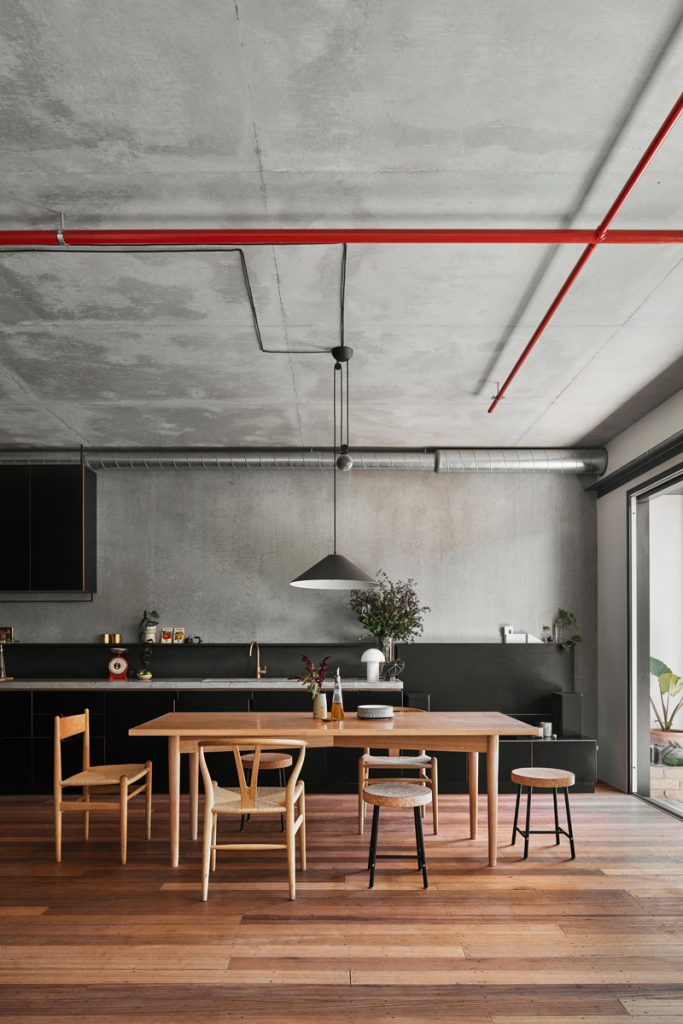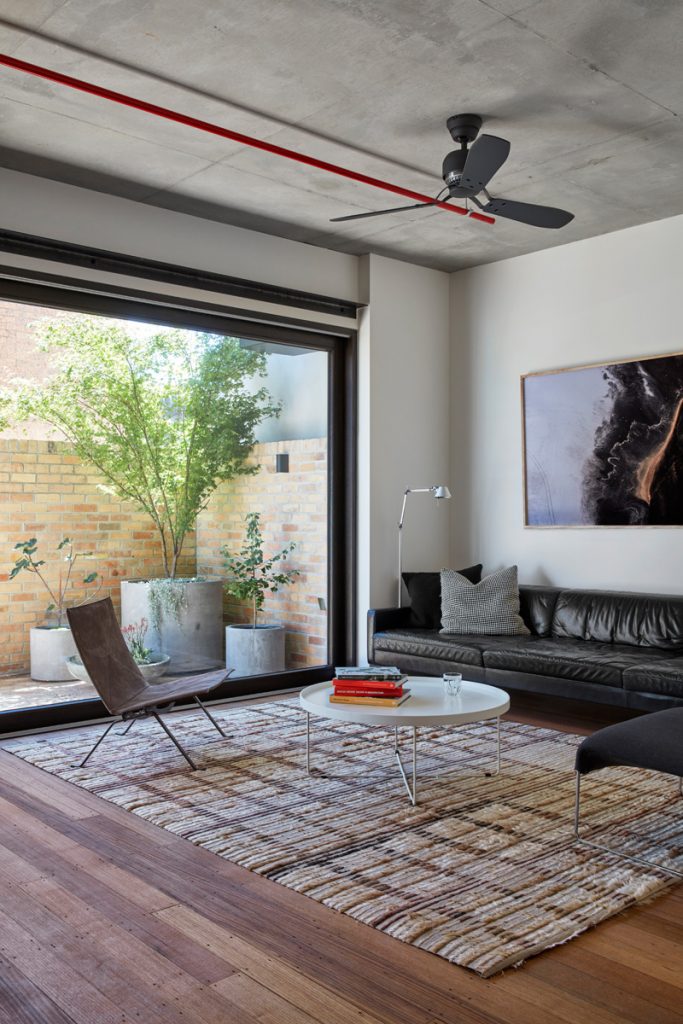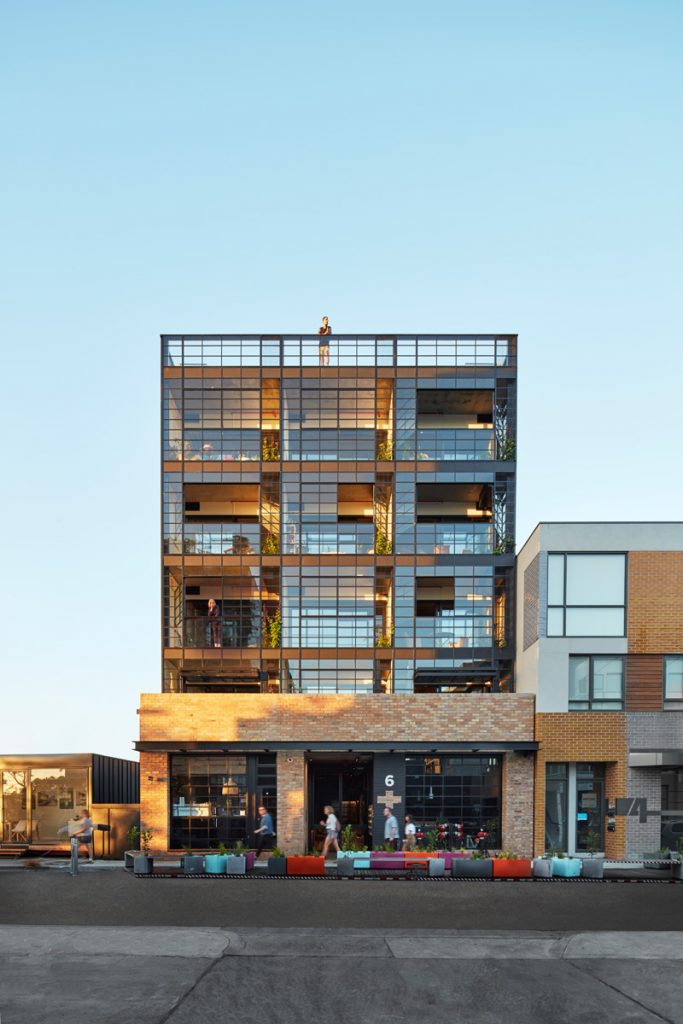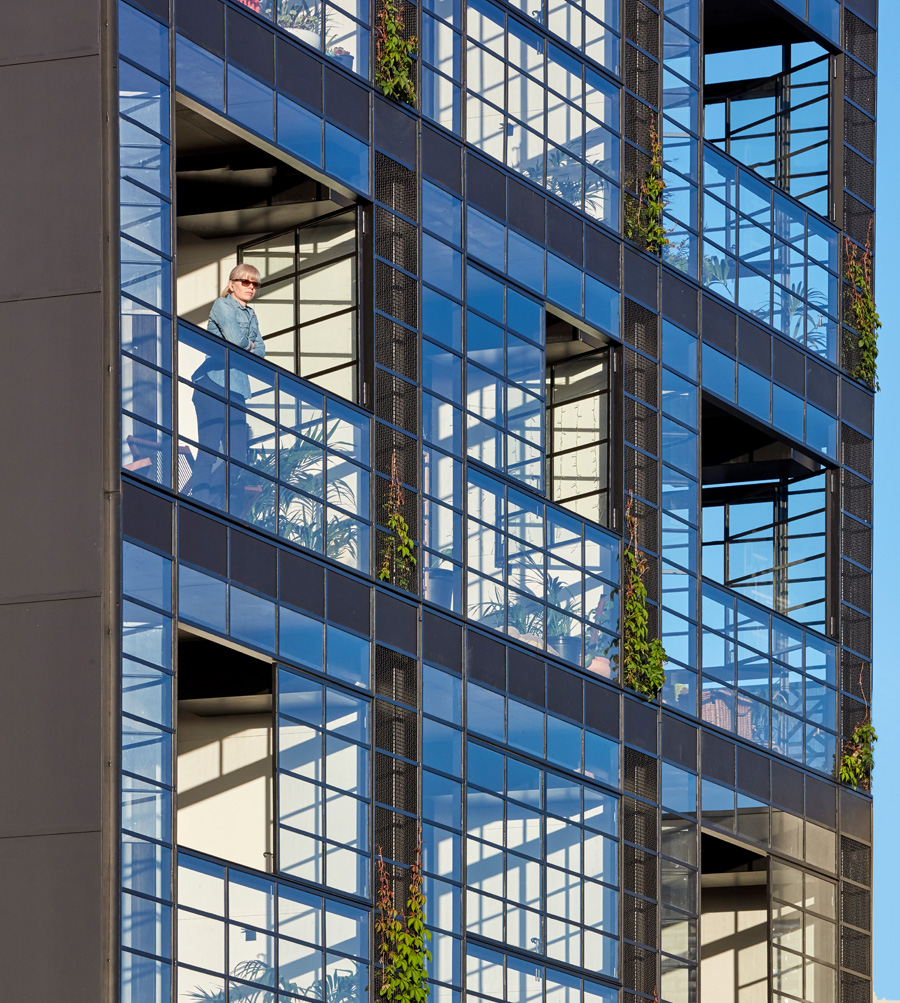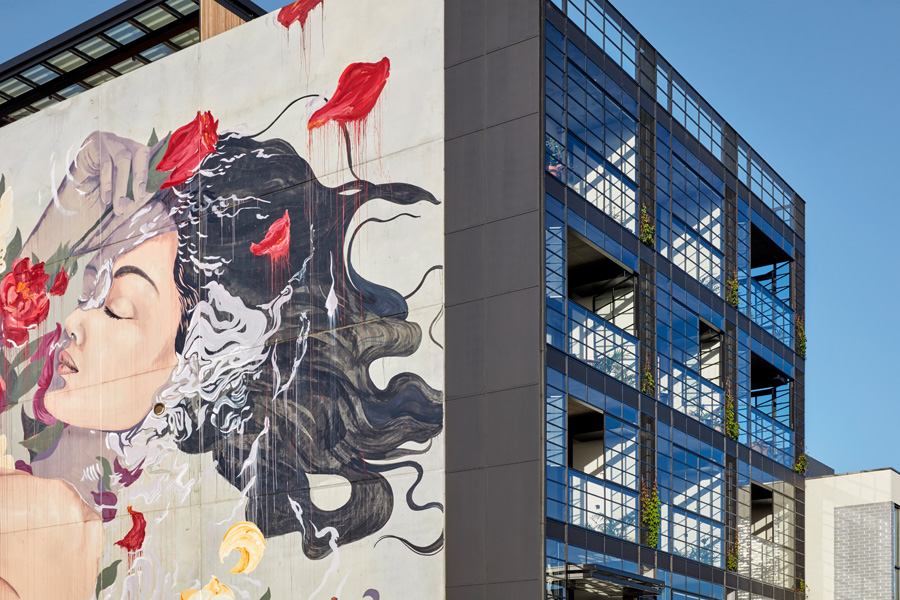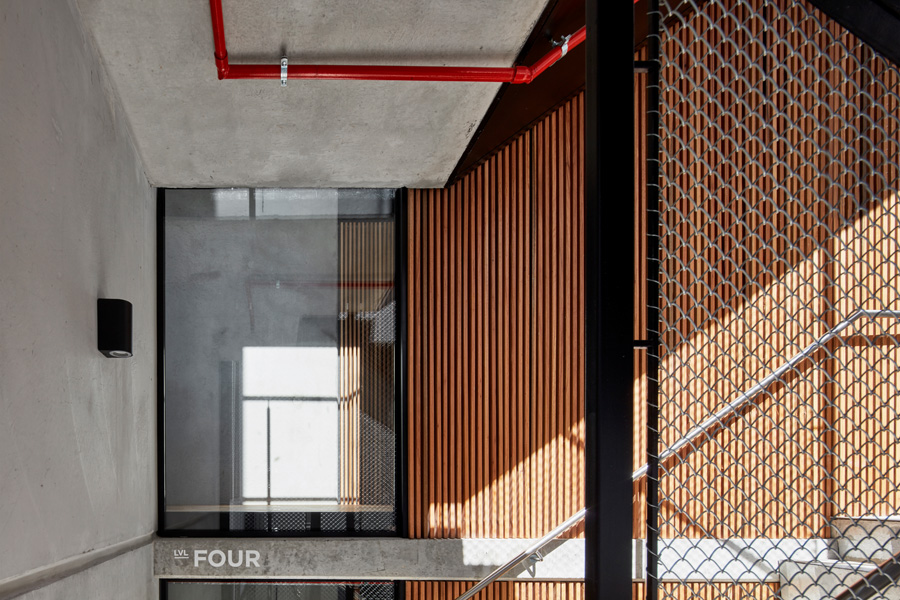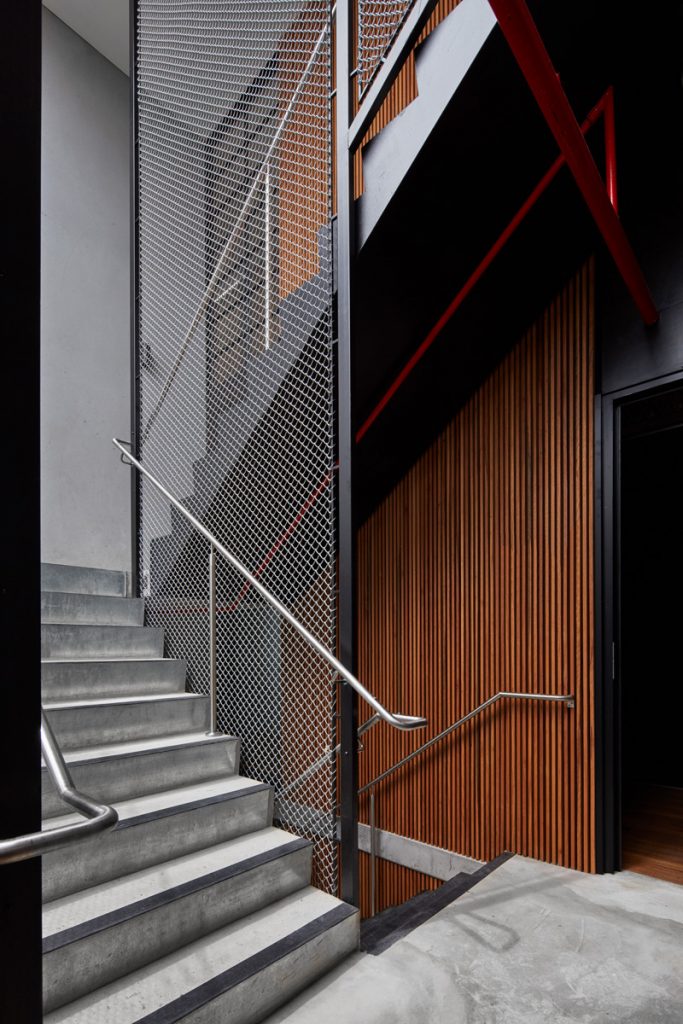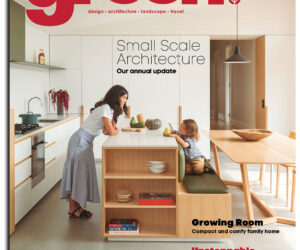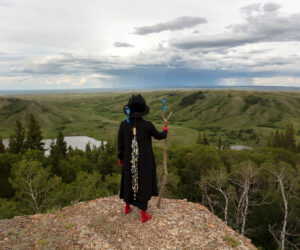MINI Profiles: Nightingale 1 by Breathe Architecture
INVERT 2.0 MINI LIVING – BUILT BY ALL is the second collaboration between green magazine, MINI LIVING, the City of Melbourne and RMIT, in the form of an exhibition and talk series which will be presented in October 2018. This year we’re exploring multi-residential design and development, a subject of increasing architectural focus in recent times. In the lead-up, we’re taking a look at a number of exemplary local and international multi-res projects that are paving the way – beginning with Nightingale 1.
Nightingale 1 is the first-born progeny of the Nightingale model, an architectural tour de force that challenges the conventions of multi-res development. Located in Brunswick, Melbourne, the 20-apartment project makes no concessions when it comes to sustainability, community and egalitarianism.
This building is exceptional from the literal outset – the glass-covered façade is immediately inviting and the gates below are open throughout the daytime to allow residents to circulate freely. Nightingale 1 is crowned with a rooftop space which includes outdoor cooking and dining facilities, a garden and a communal laundry.
Nightingale 1’s sustainable credentials are similarly impressive: the building has an 8.2 NatHERS rating, an 18-kilowatt solar array, is 100 per cent fossil fuel free and harvests rainwater for irrigation and common area toilets. Within, the restrained interior fitout allows elements like recycled Australian timber floorboards to take the limelight.
Departing from the status quo also entailed changing the financial model behind multi-res developments. In this project, equity investors were used to raise funds and a cap was placed on profits. What’s more, the homes were designed for owner-occupiers, not investors. Nightingale 1 marks a bold step towards a new way of living – and a radical approach to multi-res.
Embracing multi-res living means parting ways with Australian traditions like single dwellings on quarter-acre blocks. So we asked Jeremy McLeod, founding director of Breathe Architecture and mastermind behind the Nightingale model: How can we make multi-res more attractive to Australians?
“We shouldn’t have to. Humans are pack animals, we thrive when we come together. Our cities, great and terrible alike are a testament this very fact. We used to gather as tribes, then clans, then villagers. Humans collaborating, teaching, learning, healing together. We protected each other and supported each other. In the second half of the 20th century, the mass production of the motor car changed the way we saw ourselves as a society. We thought we could have everything great that society had to offer without the need to live close to each other, without the need to cooperate, without actually participating in the act of making community.
Great cities like Copenhagen, Barcelona, Rome, Amsterdam and Paris are examples of how to live closer together in a series of connected communities. The courtyards of Copenhagen apartment buildings filled with kids and play equipment show how the entire building community can collectively look out for the children, centralised waste stations in Barcelona allow for neighbours from all walks of life to come together in the street and meet, chat and build friendships over the shared, mundane task of separating their recycling. In Rome, neighbours across streets agree to string simple pulleys and lines between their apartment windows to share a clothesline three stories above the cobbled street below.
None of these things are difficult. None of them glamorous. None of these expensive. Yet all of them are examples of how community in these buildings, in these cities, is still as strong today as it ever was.
The answer to our modern isolation, to our lost community is there for all of us city dwellers to see. It always has been, we just need to open our eyes.”
